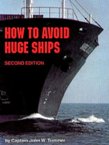warspite1
Posts: 41353
Joined: 2/2/2008
From: England
Status: offline

|
quote:
ORIGINAL: Symon
quote:
ORIGINAL: lb4269
http://www.amazon.com/Bankrupting-Enemy-Financial-Before-Harbor/dp/1591145201/ref=pd_sim_14_4?ie=UTF8&refRID=10N7DZBYY89DP0SN99HH
Has anyone read this one? I just finished Miller's "War Plan Orange" and stumbled across this while researching some of the titles above. I had never heard of it until today.
I have it and like it. It’s not so much dry, as it is focused. Miller is a financier and economist and that is what he details. You want to know? Then follow the money. Geo strategic and political issues are treated simplistically, but the book presents the economic context that informed those decisions (or were ignored, as the case may be) in a manner not done before.
It isn’t the only, or the first, book on the ‘causality’ bookshelf, but it’s on the required reading list for Asia/Pacific analysts and a must have for students of the conflict.
[edit] warspite1 is quoting from internet comments by people with their own agendas, and he selects only those sentences that support his own agenda. The book says none of that. The national intelligence community would not put such a lame piece of work on the required reading list. Maybe that's why the internet tin-foil hat people don't like it. Don't matter to me if you buy it or not. But if you don't buy it just because of the internet morons ... oh, well.
Ciao. JWE
warspite1
Symon I have no idea why you act like you do, but I guess its par for the course and I should not be surprised by now.
Internet morons? Grow up. Agendas? They're called opinions Symon and we are all allowed them. Still, I guess it beats 10-year old acne-ridden Euronazis unable to find girlfriends, and other such childlike nonsense that you like to spout when you are overdue for your meds…
So to be clear, let’s look at what just happened.
Ib4269 just posted about a book he had never heard of. I had never heard of it either but, it sounded interesting and I went to the link.
I do not ordinarily post about books I have not read – I do not believe that is correct, but, I made clear that my comments were not based on having read the book so there was no confusion. However, I was sufficiently struck by the accompanying book synopsis (not the readers reviews) that I felt compelled to write a negative opinion on this book in my post.
Now, you may be correct in your opinion of the book, but if you are – and this is indeed a serious book and not some ridiculous, sensationalist anti-American nonsense - then all I can say is that the synopsis is extremely poorly written (complete with spelling errors) and indeed is detrimental to sales of the book. You said I was quoting from the internet?? I was quoting from a description of the book – you know the sort of things that prospective purchasers use as part of their decision making process when choosing whether to buy a book. If the synopsis has sold the book short – and the synopsis does state the quotes below (despite your protestations to the contrary) - then that’s pretty poor on their part isn’t it?
I repeat:
quote:
a retired chief financial executive of a Fortune 500 resources corporation, uncovered just how much money mattered.
That is an unbelievably silly remark. Money matters??? Really? Thank goodness a retired Chief Financial Executive uncovered that because otherwise I'd never have believed it. Yes, if I was teaching history to a bunch of primary school children I may make reference to how much money mattered but in a serious work aimed at a certain audience??
Added to this, and the bit that most caught my attention, we have:
quote:
Dean Acheson, his handpicked administrator, slyly maneuvered (sic) to deny Japan the dollars needed to buy oil and other resources for war
Sorry, but I can re-read that 100 times and it gets no better. That to me smacks of someone trying to prove the American action was wrong or unjust as opposed to simply writing an account of the economic factors that lead up to the war.
quote:
His review of thirty-seven studies of Japan's resource deficiencies begs the question of why no U.S. agency calculated the impact of the freeze on Japan's overall economy.
So exactly whose fault was the Pacific War?
quote:
His analysis of a massive OSS-State Department study of prewar Japan clearly demonstrates that the deprivations facing the Japanese people were the country to remain in financial limbo buttressed its choice of war at Pearl Harbor.
Deprivations of the Chinese anyone?
So in summary the poor spelling, the sensationalist comment and the way the US actions seem to be interpreted - in the book's synopsis - immediately set me against this tome.
So if I am "guilty" of anything here it is breaking my "golden rule" of not opining on books I have not read - and have instead put weight (and possibly the wrong interpretation) behind a synopsis, a synopsis that does the book no credit (when it should be designed to do the very opposite). However, that does not make me an internet moron or a member of the tin-foil hat brigade now does it? Nor does it mean I have an "agenda" behind everything I say.
BTW: As you know from a previous exchange some years ago, your book choice is far from infallible as I know to my cost with that Bill McGee turkey you sold me. Does that make you an internet moron too? Oh well…..
< Message edited by warspite1 -- 5/24/2015 4:44:03 AM >
_____________________________
England expects that every man will do his duty. Horatio Nelson October 1805  |
 Printable Version
Printable Version





















 New Messages
New Messages No New Messages
No New Messages Hot Topic w/ New Messages
Hot Topic w/ New Messages Hot Topic w/o New Messages
Hot Topic w/o New Messages Locked w/ New Messages
Locked w/ New Messages Locked w/o New Messages
Locked w/o New Messages Post New Thread
Post New Thread